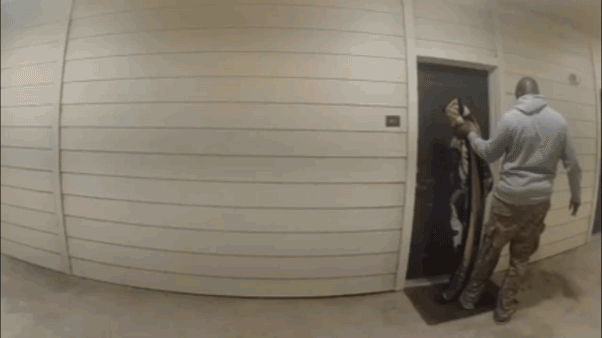BATON ROUGE, La. – Neil Carpenter took a pay cut when he accepted a job as a Louisiana state accountant more than 12 years ago, but he figured he would make up for the loss with a retirement check that would guarantee long-term financial security for him and his family.
Now the 41-year-old finds his life plan teetering as Republican Gov. Bobby Jindal seeks to restructure the pension system for rank-and-file workers, potentially requiring higher employee contributions and delaying the retirement plans of employees like Carpenter.
"Do you really want to breach a contract with the employees who have committed a long part of their lives to the state of Louisiana?" Carpenter asked state lawmakers recently.
For years, state governments lured workers with the promise of lucrative pensions that provide nearly the pay that employees earned on the job. But after years of budget crunches, nearly every state has revamped public retirement benefits in an effort to shrink the long-term obligations that are billions of dollars short of what is needed to cover benefits.
The moves have triggered a legal and political battle over whether states are reneging on their promises to millions of public-sector workers.
The National Conference of State Legislatures reports that since 2009, 43 states have boosted the slice of money workers must pay toward their own retirement, changed the age when a retiree can get benefits or modified their pension plans in other ways.
"In most cases, the changes affect only people hired after the legislation was passed. In a few plans, the changes apply to non-vested members as well," said Ron Snell, a public employee pension expert with the National Conference of State Legislatures.
Governors as ideologically apart as the conservative Jindal and California Democrat Jerry Brown are facing intense opposition from labor groups, workers and even members of their own parties as they try to change pension rules. And some battles have shifted to the courts, because most states have some sort of legal protection for public pensions.
Florida lawmakers last year passed a law requiring state workers to start paying 3 percent of their salary toward their pensions. Unions representing state workers challenged the law and won in a lower court. The lawsuit awaits a state Supreme Court decision.
Arizona legislators also backed a 3-percentage-point increase in retirement contributions for public employees, but they're working on reversing that increase after it was successfully challenged in court.
A New Hampshire judge ruled that recent pension changes in that state illegally raised contribution rates for workers vested in the state retirement system.
Few states have moved to raise the retirement age or change existing service requirements for current workers, as Jindal proposed. But most are grappling with the issue in some way:
— In New York, lawmakers voted to require new public-sector employees to pay more toward their retirement and to wait longer to get benefits. Public employee unions had strongly opposed Democratic Gov. Andrew Cuomo's efforts to cut benefits for future workers.
— In Illinois, Democratic Gov. Pat Quinn proposed raising the retirement age for public employees, requiring them to pay more toward their pensions and making school districts and colleges share in the costs. He said employees should not be allowed to retire with full benefits until age 67. Unions rejected the proposal as irresponsible and unconstitutional.
— Washington lawmakers reduced benefits for future state workers who take early retirement. Those who retire before age 62 are already penalized with lower pension benefits. Now, workers hired in May 2013 will face a 50 percent reduction if they retire at age 55 — a move expected to save $1.3 billion over 25 years.
One of the biggest battles is being waged in Louisiana, where pension programs are more than $18 billion short of the funding they'll need to pay for promised benefits. The governor says the shortfall threatens funding for critical state services as well as the state's overall ability to provide pensions to workers.
"What we're doing today is not sustainable. Part of the reason we're in this hole is for too many years, politicians made promises without paying for those promises," Jindal said.
Jindal wants to raise the contribution rate for current state workers and public college employees from 8 percent to 11 percent of their pay. He also wants to push the retirement age from as early as 55 for current workers to as late as age 67, depending on how many years they've been in the system and their age. He's seeking to create a cheaper 401(k)-style of pension plan for new hires.
The proposals would affect the retirement plans of 50,000 current state employees, including workers at public colleges.
The ideas have faced resistance so far from lawmakers and constitutional questions about diminishing benefits already promised to employees. Opponents, including leaders of the state employee retirement system, call the proposals illegal, saying they break agreements made with employees when they were hired.
"People entered into state government with a state contract provided for specifically in the Constitution," said Roy Mongrue, general counsel for the Teachers' Retirement System of Louisiana and a former assistant attorney general.
Secretary of State Tom Schedler said the governor's retirement proposals threaten to drive off some of his most qualified election workers.
"I'd leave too, quite frankly, but it's a very scary position for me," said Schedler, a Republican.
Jindal is opposing attempts to make the bills apply only to future hires.
In California, Jerry Brown faces an even-larger unfunded liability for the state's two retirement systems — $150 billion.
Brown wants to increase the retirement age for future workers, require current and new local and state government employees to pay more, increase the years a new employee must work to qualify for retiree health benefits and place new workers into a hybrid plan that includes 401(k)-style accounts.
Republicans say Brown's plan doesn't go far enough but have generally embraced his proposal. "We believe it's a good start," said Senate Minority Leader Bob Huff, a Republican. "It's certainly rare that you see us agreeing with the Democrat governor."
But Democratic lawmakers who control the Legislature in California have not acted on the ideas in the more than six months since Brown offered them.
Concerns have been raised that existing case law makes it difficult to change contribution rates for current employees and retirees outside of collective bargaining. Union leaders have said the proposals cut too deeply into pension benefits, despite a nonpartisan legislative analysis that found California public workers receive some of the most generous pension benefits in the U.S.
Carroll Wills, a spokesman for the California Professional Firefighters, said the union supports some measures, like ending pension abuses, but feels public employees have been maligned in stories about public executives who game the system.
Wills said "the notion that pension funds are an unmitigated drain on tax dollars" is misleading.
Changes to state-backed retirement plans for public employees were rare before 2005, said Snell, of the National Conference of State Legislatures. But then the economic slump and the stock market downturn battered investments and funding levels of retirement systems.
The average funding ration for 126 statewide retirement plans had fallen to about 77 percent by 2010, according to the Center for Retirement Research at Boston College. To pay for benefits, more and more tax dollars will have to be shifted to pension payments, threatening to crowd out spending on health care, education and road repairs.
The underfunding isn't the workers' fault. Retirees are living longer, the systems assumed optimistic investment returns but faced losses instead and politicians raised benefits or added workers to systems over the decades without adding new money to cover the costs.
"We made a bunch of promises we couldn't keep. We're where we are because all of us like to make people feel good and promise them things like a 28-year retirement, which sounded great at the time, but we didn't pay for it," said South Carolina Rep. Gilda Cobb-Hunter, a Democrat who served on a panel that studied that state's retirement benefits.
But public employees, in many instances, don't have the Social Security safety net. They don't pay into that government system and so they can't get Social Security benefits when they get older. That's why they think it's unfair for states to shrink their pensions.
"The state made a commitment," Jerry Pecora, a 25-year Louisiana state employee, recently urged lawmakers. "Don't penalize and punish the people that are working hard to try to provide, to stay off all the welfare, to stay off all the social stuff."
For his part, Carpenter is trying to sort out what the changes may mean for his financial future. The Louisiana Workforce Commission accountant had planned to put his three children through college before retiring at around age 59 with full benefits, about three-fourths of his salary. Now he faces the possibility of having to wait until he turns 64 to reach that level of pension benefits.
"You're paying more to wait longer for less benefits," he said. "One thing is bad enough, but when you combine it with insurance going up, pay staying the same, I'm considering looking at going back to the private sector."
___
Associated Press reporters Judy Lin in Sacramento, Calif.; Paul Davenport in Phoenix and Seanna Adcox in Columbia, S.C.; contributed to this report.









































